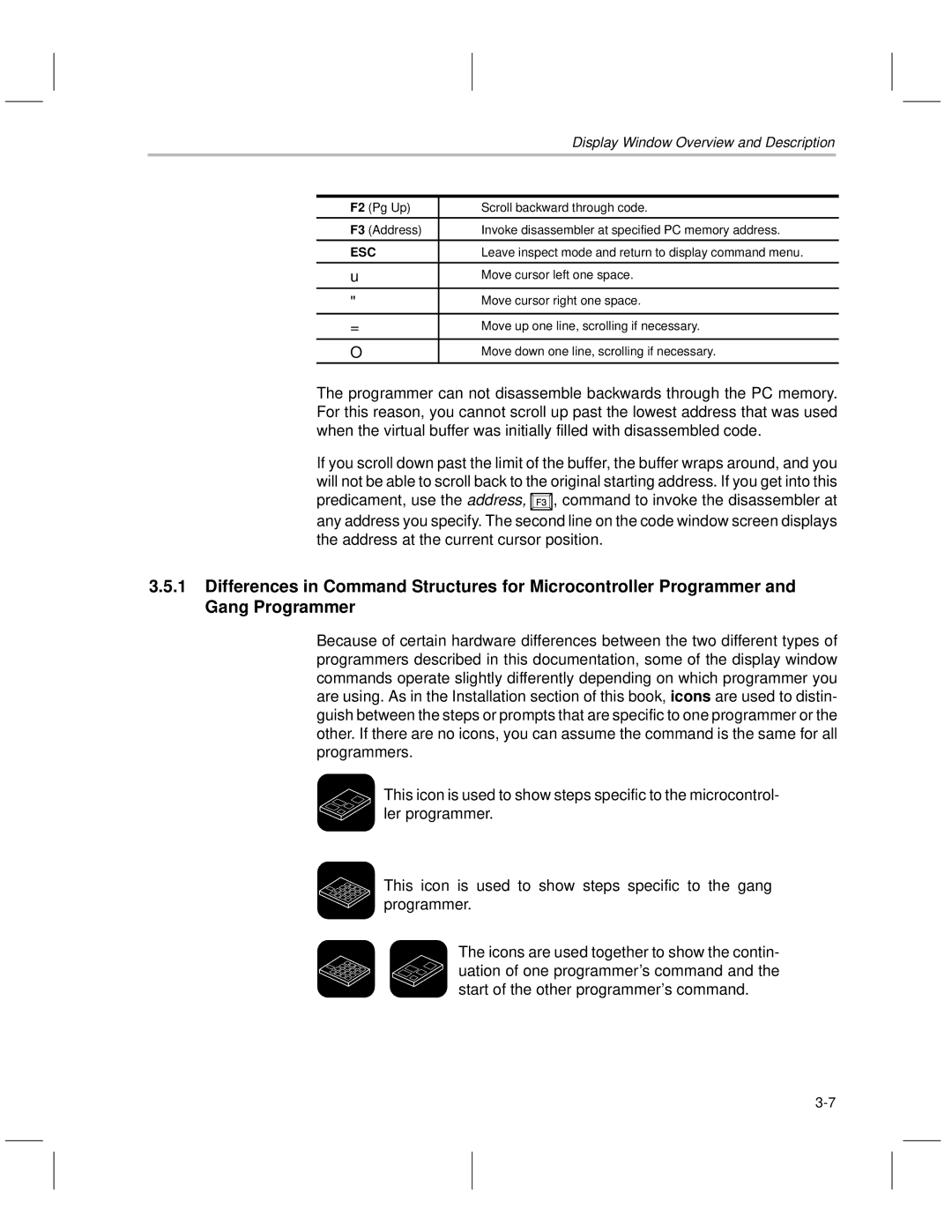
|
| Display Window Overview and Description |
|
|
|
|
|
| F2 (Pg Up) | Scroll backward through code. |
|
|
|
|
|
| F3 (Address) | Invoke disassembler at specified PC memory address. |
|
|
|
|
|
| ESC | Leave inspect mode and return to display command menu. |
|
|
|
|
|
| ← | Move cursor left one space. |
|
|
|
|
|
| → | Move cursor right one space. |
|
|
|
|
|
| ↑ | Move up one line, scrolling if necessary. |
|
|
|
|
|
| ↓ | Move down one line, scrolling if necessary. |
|
|
|
|
|
The programmer can not disassemble backwards through the PC memory. For this reason, you cannot scroll up past the lowest address that was used when the virtual buffer was initially filled with disassembled code.
If you scroll down past the limit of the buffer, the buffer wraps around, and you will not be able to scroll back to the original starting address. If you get into this predicament, use the address, ![]() , command to invoke the disassembler at any address you specify. The second line on the code window screen displays the address at the current cursor position.
, command to invoke the disassembler at any address you specify. The second line on the code window screen displays the address at the current cursor position.
3.5.1Differences in Command Structures for Microcontroller Programmer and Gang Programmer
Because of certain hardware differences between the two different types of programmers described in this documentation, some of the display window commands operate slightly differently depending on which programmer you are using. As in the Installation section of this book, icons are used to distin- guish between the steps or prompts that are specific to one programmer or the other. If there are no icons, you can assume the command is the same for all programmers.
This icon is used to show steps specific to the microcontrol- ler programmer.
This icon is used to show steps specific to the gang programmer.
The icons are used together to show the contin- uation of one programmer's command and the start of the other programmer's command.
